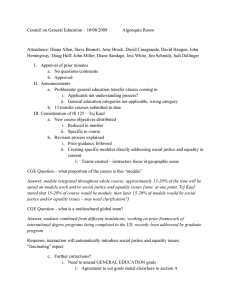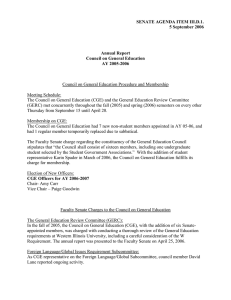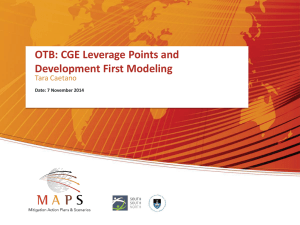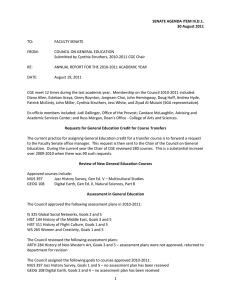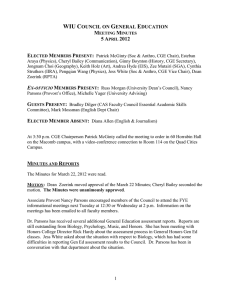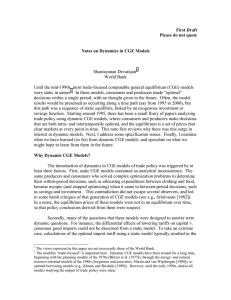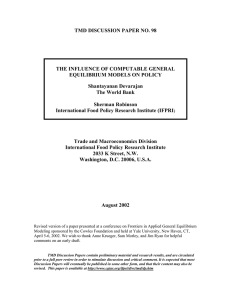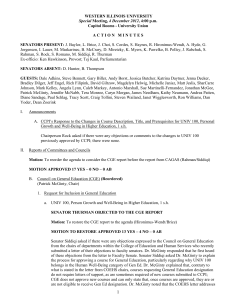Annual Report Council on General Education AY 2001 – 2002 August 20, 2002
advertisement
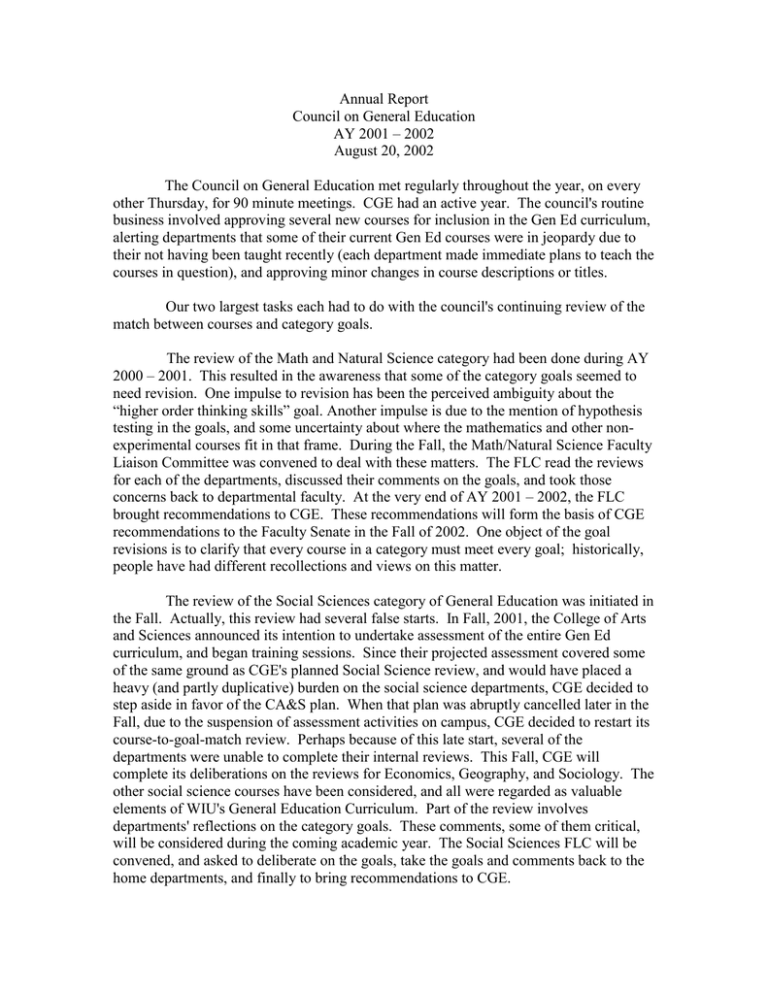
Annual Report Council on General Education AY 2001 – 2002 August 20, 2002 The Council on General Education met regularly throughout the year, on every other Thursday, for 90 minute meetings. CGE had an active year. The council's routine business involved approving several new courses for inclusion in the Gen Ed curriculum, alerting departments that some of their current Gen Ed courses were in jeopardy due to their not having been taught recently (each department made immediate plans to teach the courses in question), and approving minor changes in course descriptions or titles. Our two largest tasks each had to do with the council's continuing review of the match between courses and category goals. The review of the Math and Natural Science category had been done during AY 2000 – 2001. This resulted in the awareness that some of the category goals seemed to need revision. One impulse to revision has been the perceived ambiguity about the “higher order thinking skills” goal. Another impulse is due to the mention of hypothesis testing in the goals, and some uncertainty about where the mathematics and other nonexperimental courses fit in that frame. During the Fall, the Math/Natural Science Faculty Liaison Committee was convened to deal with these matters. The FLC read the reviews for each of the departments, discussed their comments on the goals, and took those concerns back to departmental faculty. At the very end of AY 2001 – 2002, the FLC brought recommendations to CGE. These recommendations will form the basis of CGE recommendations to the Faculty Senate in the Fall of 2002. One object of the goal revisions is to clarify that every course in a category must meet every goal; historically, people have had different recollections and views on this matter. The review of the Social Sciences category of General Education was initiated in the Fall. Actually, this review had several false starts. In Fall, 2001, the College of Arts and Sciences announced its intention to undertake assessment of the entire Gen Ed curriculum, and began training sessions. Since their projected assessment covered some of the same ground as CGE's planned Social Science review, and would have placed a heavy (and partly duplicative) burden on the social science departments, CGE decided to step aside in favor of the CA&S plan. When that plan was abruptly cancelled later in the Fall, due to the suspension of assessment activities on campus, CGE decided to restart its course-to-goal-match review. Perhaps because of this late start, several of the departments were unable to complete their internal reviews. This Fall, CGE will complete its deliberations on the reviews for Economics, Geography, and Sociology. The other social science courses have been considered, and all were regarded as valuable elements of WIU's General Education Curriculum. Part of the review involves departments' reflections on the category goals. These comments, some of them critical, will be considered during the coming academic year. The Social Sciences FLC will be convened, and asked to deliberate on the goals, take the goals and comments back to the home departments, and finally to bring recommendations to CGE. The upcoming academic year will see the intiation of the Humanities review. Some concern has been expressed about the absence of ex-officio members from CGE meetings. No one has been representing the Provost's Office, and the Deans' Council has been represented by one or another Associate Dean, rather than the actual Dean (the perceived problem is that the person attending the CGE meetings does not necessarily attend the Deans' Council meetings). The Advising Center representative has been a reliable and constructive participant, however. Officers for AY 2002 – 2003 are Ken Mietus (chair) and Ginny Jelaitis (vice chair). Submitted by Dale Hample, CGE chair for AY 2001- 2002
